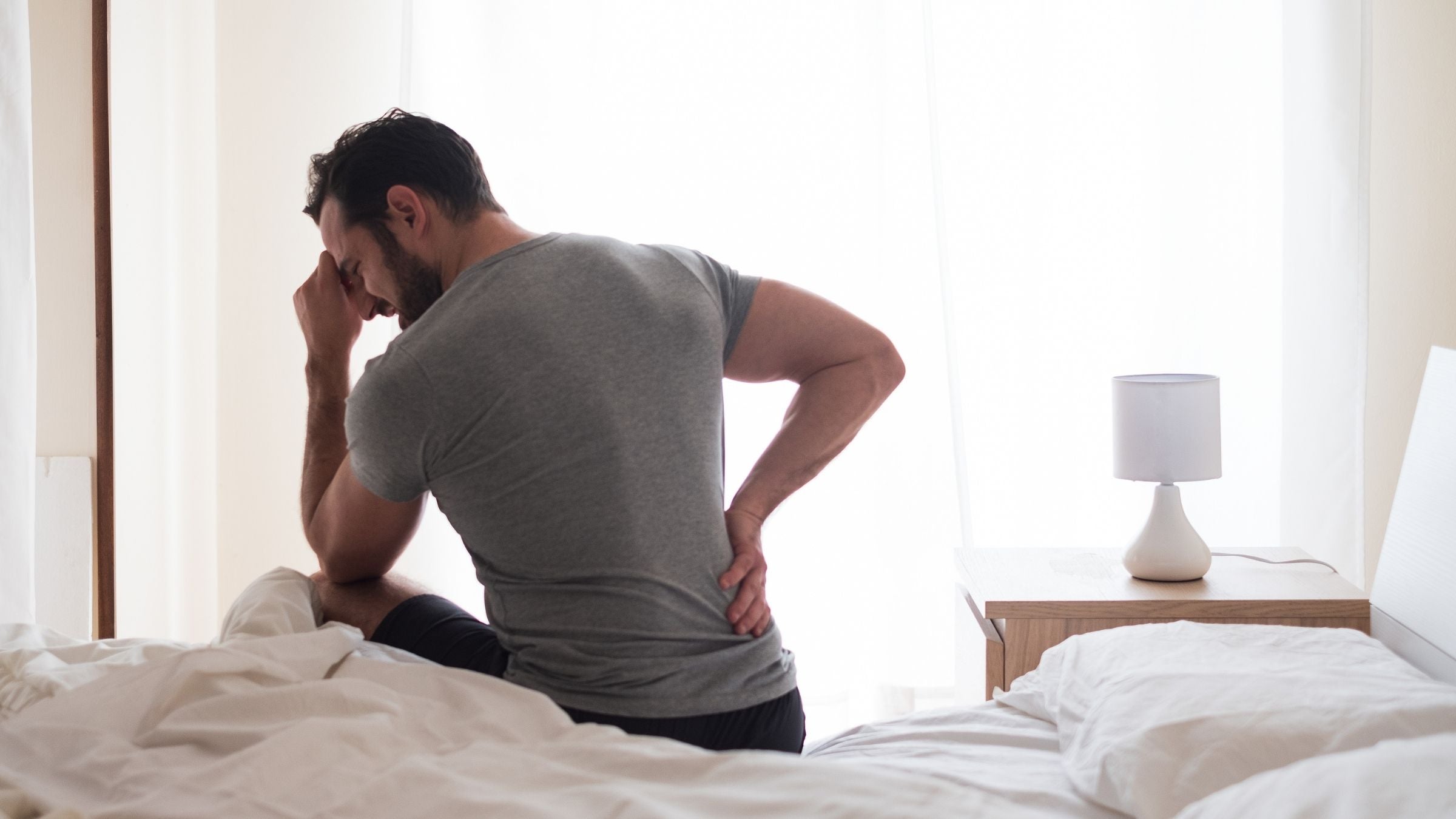Ask a Trainer: How Can I Sleep More Comfortably When I'm Injured?

(Photo: Getty Images)
When it comes to recovery from your training and racing, there are many different options to choose from: a myriad of gadgets (foam rollers, trigger point balls, massage guns), vitamins and supplements, topical cream/oil, massage, cryotherapy, compression boots…the list goes on and on! All these claim to speed up recovery, however, the most effective and underrated recovery strategy is a consistent good night’s sleep.
Sleep is vital for your brain and body. It’s the time where your cells repair and grow from the stress you applied to them during your training and other life demands. Being in a sleep-deprived state negatively affects your mental and physical well-being. This includes impairments in mood, cognitive function, ability to cope with stress, and learning and memory consolidation.
There are many negative physical effects of sleep loss that can also impact your athletic performance. Sleep deprivation impedes muscle recovery and repair from damage, which can prolong injury recovery time and inhibit training adaptations. Other effects include an increased perception of effort with exercise, decreased running performance, reduced muscle glycogen stores, and impaired reaction time.
With all the known benefits of sleep, sometimes it can be difficult to get a good night’s sleep. This is especially true when injured and in pain—finding a comfortable position can be challenging. I typically don’t recommend one specific sleep position for an injury, as this is highly individualized. I don’t want an athlete to be stressed about sleeping in the “right” position as this might cause them to actually lose sleep. Whatever position you get the best sleep is what I usually recommend. However, here are some common themes I see for certain injuries.
- For athletes struggling with plantar fasciitis, who often have pain with the first steps out of bed in the morning, I recommend trying a sock or brace that keeps your foot in a more neutral position (ex. Strassburg sock). If you can sleep comfortably in this, it may help to lessen morning pain.
- If you are experiencing shoulder pain or pain on the outside of your hip, I usually advise to not sleep on the painful side. For your hip, if you sleep on the opposite side, it can help to put a pillow between your legs.
- With low back pain, sleeping on your back with your knees slightly propped can be more comfortable than lying completely flat. If you are a stomach sleeper, adding a pillow under your lower abdomen can help as well.
Again, with the above injuries the positions recommended depend on the person, and you might need to experiment with different positions to see what works best for you. Even if you’re not currently injured, sleep is a critical part of preventing injury, so optimizing your sleep habits is time well spent.
Here is an article that outlines strategies to get better sleep: A Triathlete’s Guide to Better Sleep.
So how much sleep should you be getting? It is recommended that healthy adults need 7-9 hours per night. However, many athletes need more like 9-10 hours to reach their full potential. I realize that this is nearly impossible for the time crunched age-group athlete, so I typically recommend aiming for eight hours. A recent systematic review examined the best interventions to improve sleep to aid athletic performance and recovery. It found sleep extension, or simply sleeping longer at night, had the most beneficial effects on subsequent athletic performance. Sleep hygiene and post-exercise recovery strategies were not as helpful.
I hope this helps shed some light on the importance of sleep being the best (and least expensive) recovery tool you have. Good luck, train hard, and recover harder!
Hannah DePaul is a sports certified physical therapist at Adams Sports Medicine & Physical Therapy where she specializes in treating endurance athletes. Hannah is an avid triathlete and two-time Ironman World Championship finisher.